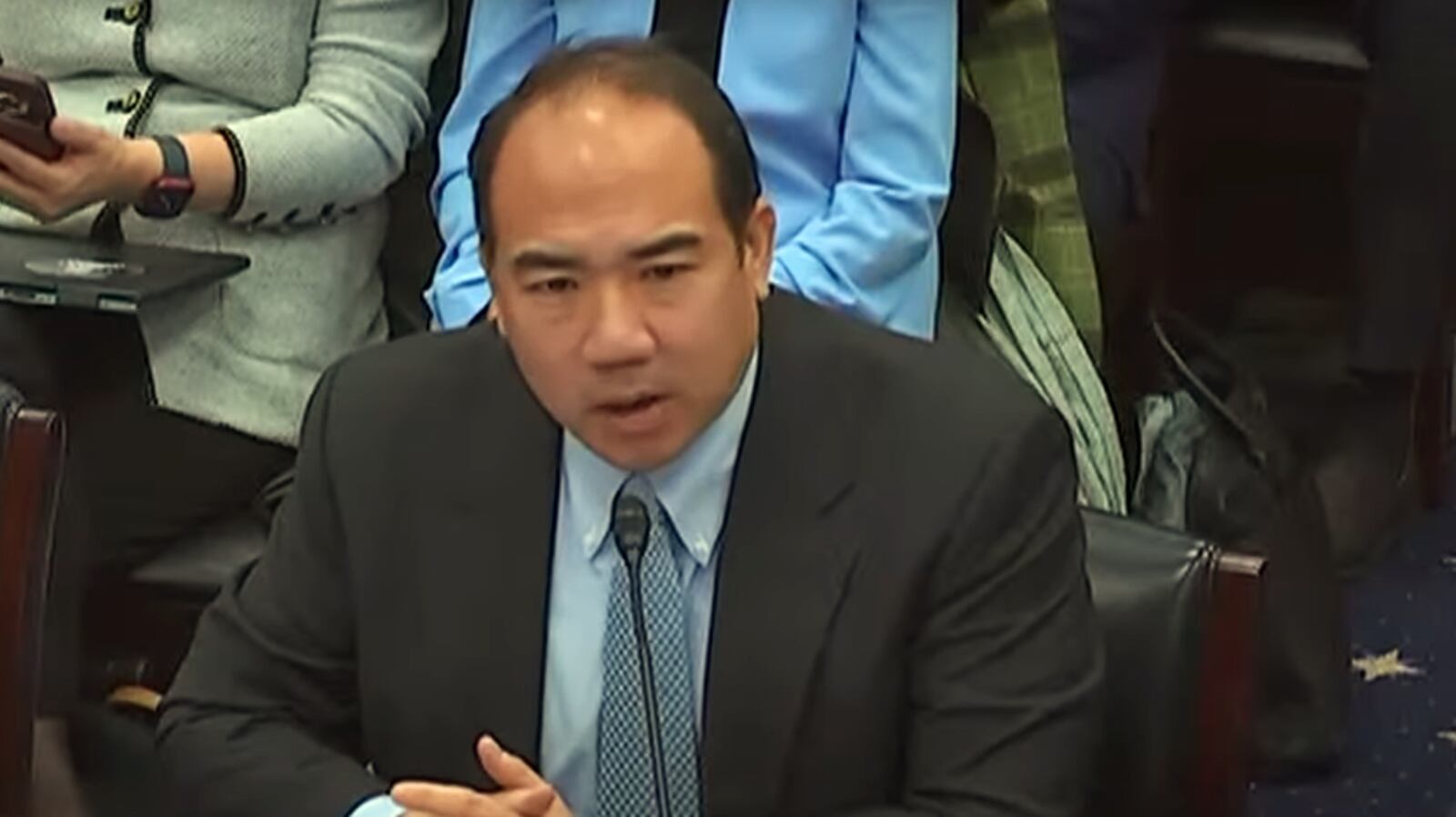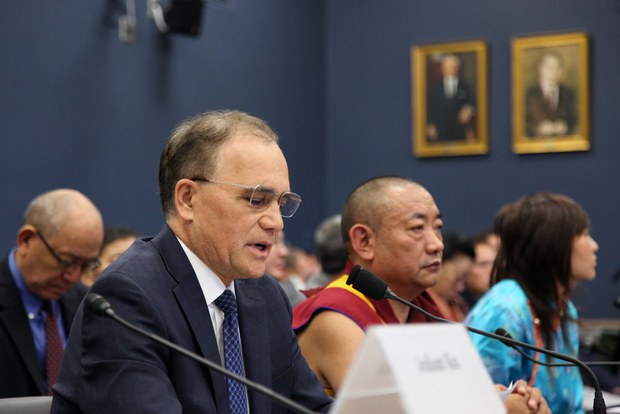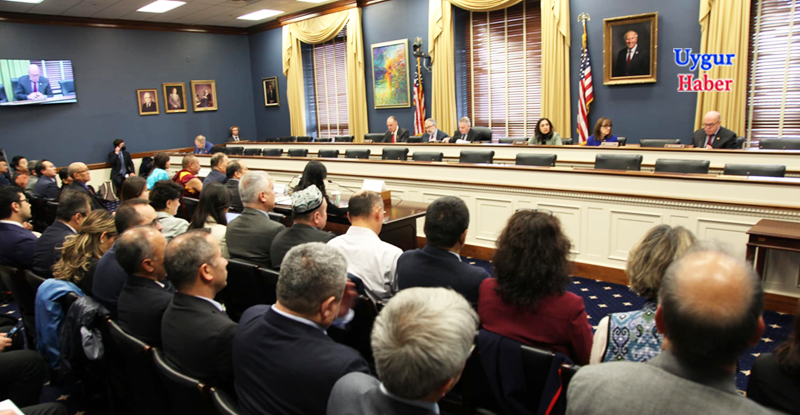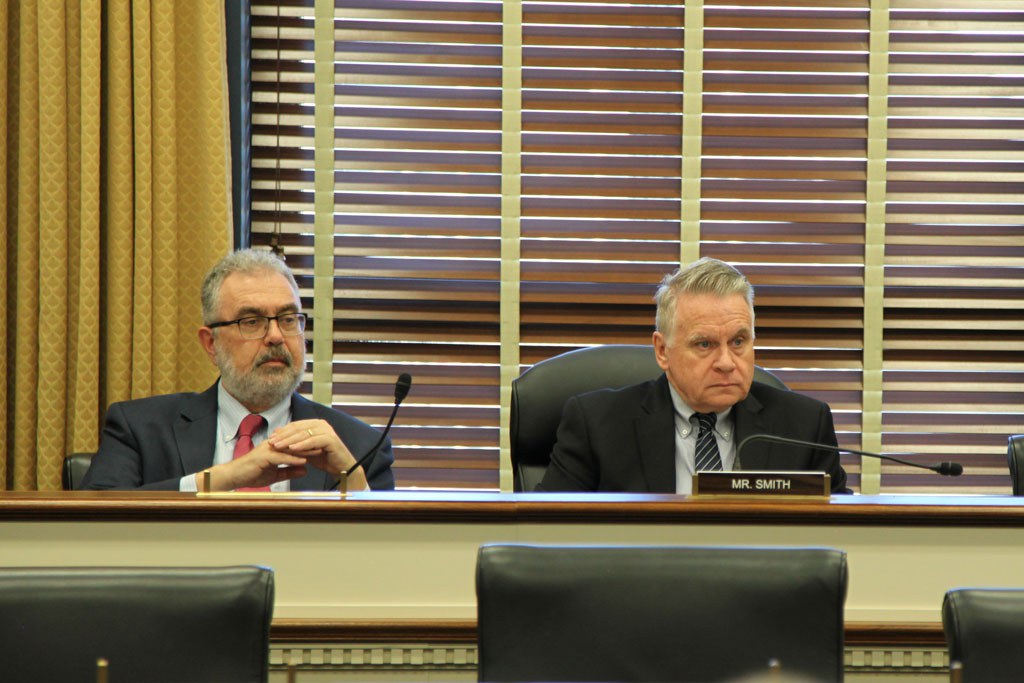Testifying at a US congressional hearing, Dr. Rishat Abbas, Tibetan and Mongolian activists, warning that China is escalating its campaign to erase the cultural identity and reshape the history of the Uyghurs and other ethnic groups, with these efforts now reaching American soil.
Activists testified at a US congressional hearing on November 5, 2024, warning that China’s government is intensifying its campaign to reshape the cultural identity and history of the country’s minority ethnic groups, with these efforts now extending to American soil.
Uyghur, Tibetan, Mongolian, and Chinese activists stated that while the United States was once seen as a stronghold of free speech and a haven for cultural preservation for groups persecuted by the Chinese Communist Party (CCP), many now fear the growing influence of Beijing’s reach, according to Radio Free Asia.
Rishat Abbas, president of the US-based Uyghur Academy, updated the Congressional-Executive Commission on China’s ongoing Uyghur genocide.
According to the report, the US government has accused Chinese government of committing “genocide” against the Uyghur in East Turkistan. Many Uyghurs living abroad are actively campaigning to stop the genocide and to preserve their language and culture.
Many Uyghurs choose to remain silent, considering the treatment of their family members still in China, who are often targeted when they speak out. They fear provoking the Chinese Communist Party, even from abroad. “My sister’s imprisonment is a clear act of retaliation,” Abbas explained.
“Her detention highlights the CCP’s aggressive policies that target Uyghurs solely because of their identity and the activism of their relatives overseas.”
He added, “She has never been involved in any form of advocacy.” Despite this, Abbas remains undeterred and hopes to one day bring a Uyghur-language textbook created in the US back to Xinjiang, where Uyghurs live under constant surveillance.
Uyghur immigrants are not the only ones targeted. In the past, American universities such as Stanford University boldly compiled US-based historical archives on events censored by the Chinese government, according to Julian Ku, a constitutional law professor at Hofstra University in New York. However, the situation has since changed.

Like the Uyghurs, many ethnically Han Chinese in America also fear speaking out against Beijing, even while in the United States, according to historian Rowena He, who was banned from entering Hong Kong last year.
“It’s hard not to feel emotional being here again because I remember 5 to 10 years ago when I was first invited to testify before Congress I was extremely hesitant, worried about my family members and deeply concerned.” She also explained “I’ve lived with fear ever since I started teaching and researching Tiananmen.”
Geshe Lobsang Monlam, a Tibetan monk who authored a 223-volume Tibetan dictionary and leads efforts to preserve the Tibetan language outside of China, stated that securing necessary funding is one of the biggest challenges for Tibetans living abroad, besides pressure from Beijing.
“Inside Tibet, young Tibetans seem powerless in their efforts to preserve and promote their language,” he said, pointing to organised attempts to diminish the use of Tibetan as young people become more proficient in Mandarin.
He added, “If the United States could assist by providing technological resources to help those of us in exile continue our work on preserving Tibetan culture, language, and way of life, it would be incredibly helpful.”
Similarly, Temulun Togochog, a 17-year-old Southern Mongolian activist born in the US, also called for increased funding to support cultural preservation efforts.
She noted that Mongolians living in China’s Inner Mongolia were facing treatment similar to that of Tibetans and Uyghurs, with “systematic oppression and erasure of the Mongolian language” being replaced by “patriotic education” that glorifies the communist party.




